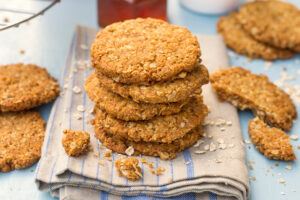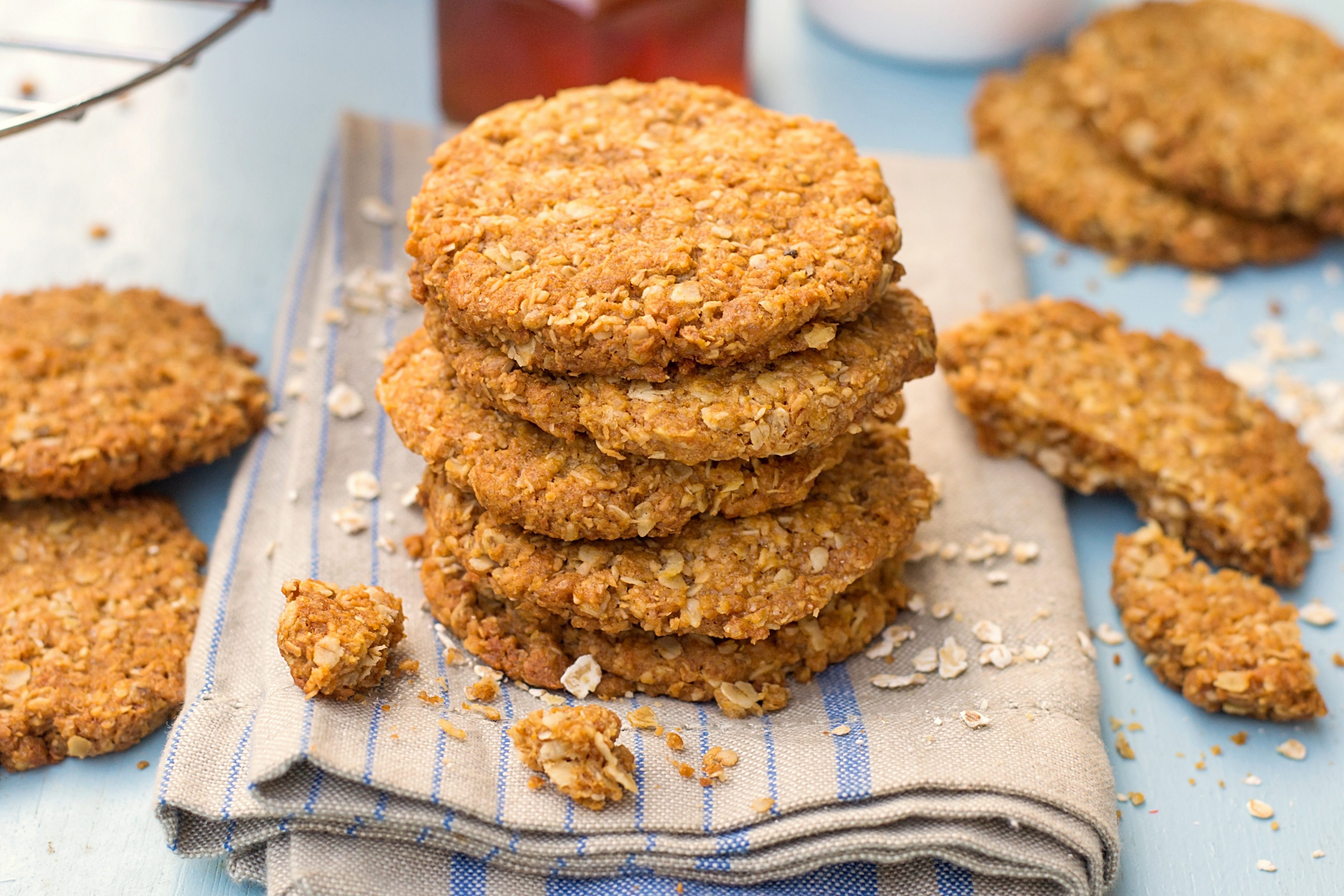
When you have diabetes, you have to be careful about what you put into your body. This means you’ll need to do a ton of research and endure dietary restrictions to live a long and healthy life.
A good portion of the food you can buy in a restaurant or grab at the supermarket for a quick meal is not diabetes-friendly, especially those made from all-purpose flour. Does that mean you can never enjoy cookies, or bread, or wraps ever again? No.
It is true that all-purpose flour is high in carbs and not suitable for regular consumption for diabetics, but there are alternatives that have a lower Glycemic Index (GI) and are more nutritious than all-purpose flour.
Today, we’re going to take a look at 9 such flours for baking purposes:
1. Almond Flour
Almond flour is a great choice for persons who are allergic to gluten or have chosen to go the vegan or grain-free route. Almonds are low in carbs, and high in protein and Vitamin E whose antioxidant properties help to reduce your risk of cancer and heart disease. It is also rich in Magnesium, a key component in regulating both blood sugar, and blood pressure.
As it relates to the Glycemic Index for Almond Flour, it stands at 0 since it’s made of nuts and can also increase insulin sensitivity . Its carbohydrate content is primarily fiber that plays a huge role in regulating blood sugar and is also good for gut health, so win-win.
It’s easy to replace regular flour with Almond flour in most recipes. Be sure to consider the carb content of everything you add, especially in deserts.
The drawback to almond flour is in its high-fat content and lack of gluten which means you’ll have to use more eggs or baking powder in a recipe to achieve greater consistency. It also goes bad pretty fast so store in an airtight container or in the refrigerator.
Almond flour is easy to find in most supermarkets so getting your hands on some shouldn’t be difficult. Be careful to not get Almond Meal since it’s not the same thing, and is coarser and more suited to coating (substitute for bread crumbs)
2. Soy Flour
Soy flour is also vegan-friendly since it is a plant-based protein. It is high in protein and is a great source of dietary fiber, calcium and Vitamin B.
Soy has a Glycemic Index of 16 which is relatively low and has been linked to reducing blood cholesterol levels and reducing the risk of coronary heart disease.
Since it is gluten-free, you may have to add a rising agent like yeast or baking soda when making bread and binding agents like xanthan gum to compensate for the lack of elasticity and to make it easier to work with.
When making baked goods, use about a third of the amount you would use when using regular flour. It bears a similar consistency to coconut flour, meaning it is dry and absorbs ingredients easily.
Aside from making baked goods, you may also use it to thicken broths and sauces to your liking.
3. Coconut Flour
Coconut flour is vegan-friendly, keto-friendly, gluten-free, kosher and yummy. It is made from what is left over after producing coconut milk and oil and has a soft texture perfect for baking.
Coconut flour is rich in fiber but relatively low in carbs and calories. It has a low Glycemic Index which makes it suitable for diabetics, and also contains healthy fats which help to boost metabolism, lower bad cholesterol boosts heart health. Coconut flour is also great since it decrease blood glucose and cholesterol
Coconut flour is mild in taste so it works well with pretty much any recipe. When using this flour, bear in mind that it absorbs liquid easily, so you may need to add more liquid to keep it moist. It is advised that you use a third of what you would with ordinary flour, as it can make baked goods crumbly and dry.
4. Walnut Flour
Walnut flour is another nut flour with a Glycemic Index of 0 , is vegan-friendly, gluten-free, grain-free and compatible with all low-carb diets.
Walnuts are believed to be the healthiest of nuts and are rich in healthy fats that support heart and muscle health. It is rich in fiber that helps to prevent constipation and regulates blood sugar, along with necessary proteins that help to suppress appetite for diabetics on weight loss regimens and boosts metabolism. You can also look to walnuts for its antioxidant content as it is anti-inflammatory, supports brain function and reduces oxidative stress.
Walnut flour works well as a substitute for all-purpose flour in most baked recipes such as pancakes, cakes, and pastry. It can have a coarse texture, similar to cornmeal, which makes it a great choice for bread and crummy pastry.
5. Ground Flaxseed Flour
Flaxseeds are a superfood. They’re rich in nutrients such as copper, magnesium, manganese, and thiamine which keep blood cholesterol low, promote smooth skin, keeps hair and nails healthy. They also play a role in making red blood cells, regulating blood pressure, metabolizing carbohydrates and regulating blood sugar.
Ground Flaxseed flour has a low Glycemic Index since it contains no carbohydrates that will raise your blood sugar. Its fiber content is not only good for digestive health, but it also helps to reduce blood sugar concentration.
When ground into flour, it has a high concentration of oils and can be used to reduce the number of eggs and fats needed in baked goods. You can mix it with other flours or make it into vegan cookies, cakes, muffins, and other baked goods.
6. Spelt flour
Spelt is a whole grain that humans have used for years. It is similar to wheat but is more nutritious and packed with fiber and protein. It is also high in gluten so if you’re on a gluten-free diet, just skip to the next one.
This flour has a moderate Glycemic Index of about and should be used along with low carb ingredients. Spelt flour is naturally sweet so you should also bear that in mind when making your baked goods.
The beauty about spelt flour is that because it is so close to wheat, it makes bread the way you may have been used to it. However, it is much easier to digest since it is more water-soluble. Transition to other types of bread may be hard when you are newly diagnosed so this is a great stepping stone. You may also use spelt flour to make cookies, pancakes, cakes, and biscuits.
7. Chickpea Flour
Next on our list is another bean that you may be familiar with, chickpeas . You may use in your curries, salads, and soups, but did you know that it’s a great alternative to flour?
Chickpea flour is gluten-free and rich in protein that supports weight loss, boosts metabolism and improves immunity. This flour is also rich in fiber which helps you to maintain an optimal weight, lowers cholesterol and reduces blood sugar. It has a Glycemic Index of 10 .
Chickpea flour is a great alternative for making crusts such as pie crust and pizza crust and is also great for bread, waffles, and muffins. It also makes for a good batter when frying and is good for thickening soups and sauces. Bear in mind that this flour is naturally dense so it may be harder to work into certain recipes.
8. Oat Flour
If you already have oats at home, you can make your own flour with a food processor or blender, but if you don’t want to, that’s fine since you can get it in a supermarket.
Oat flour is a grain flour and is naturally gluten-free. It has a Glycemic Index of 44 which makes it a good choice for diabetes and a good source of protein for vegans.
This flour has all the same nutritional benefits of oatmeal and is a popular ingredient for diabetics since it helps to regulate blood sugar. Oat flour is a great way to make authentic oatmeal cookies and muffins and works well in, bread, waffles, biscuits, pancakes and anything else you can bake.
9. Rye Flour
Rye Flour is extremely popular in Europe and has been used as an alternative to wheat flour for generations. It has a distinct taste that takes a bit of getting used to but it is more popularly used in breads and biscuits.
If you’re on a grain-free diet, then this flour isn’t for you since it is a whole-grain product. It’s not gluten-free either, however, it has less gluten than say barely flour or wheat flour. Depending on how you use it, rye flour has a low to moderate Glycemic Index so use it sparingly and consciously.
When you use this flour, look out for health benefits like boosted metabolism and blood sugar control , hunger suppression and weight loss, along with nutrients such as phosphorus, zinc, magnesium, and iron.
When You Don’t Want To Use Flour At All
Too much of any one thing isn’t good for you, even if it’s nutritious. Here are some alternatives:
- Using lettuce to replace burger buns and wraps
- Use spiraled vegetables and sprouts instead of pasta
- Having sweet potatoes instead of dumplings
- Substituting bread for eggs
- Making coconut meat cookies instead of using flour
- Trying eggplant disks instead of burger buns and sandwich bread
- Making pizza with Cauliflower crust
- Mushroom burger buns
Final Word
There’s no reason you should miss out on your favorite baked goods. Once you have the right ingredients, swap the flour in your pantry for alternatives like:
And, when you’re tired of flour, swap those out for veggies like lettuce and cauliflower, some eggs, mushrooms, sweet potatoes or coconut meat.
